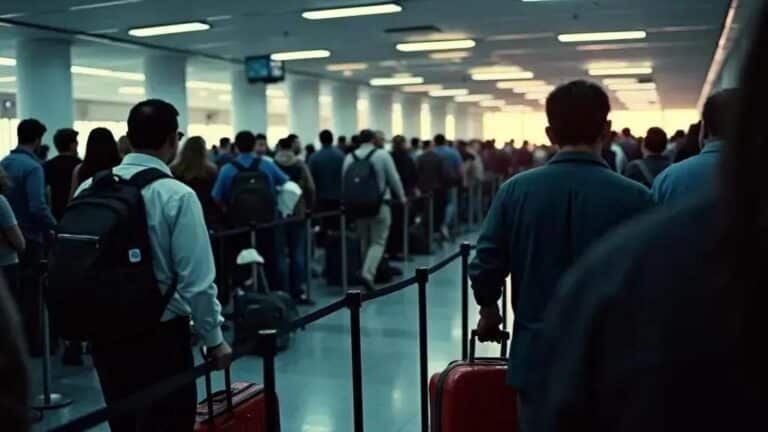Tariffs have quietly started to look like a tax on U.S. companies, cutting into profits and slowing hiring — but is this effect temporary or the start of a bigger shift? Here’s a clear look at who bears the cost, what firms are doing, and what might come next.
Tariffs as a hidden corporate tax: revenue and effective rates
Many people see tariffs as taxes on imported goods. But for businesses, they often feel like a hidden tax. When a company imports materials or products, it pays these tariffs. This cost adds up quickly.
Think of it this way: a tariff is an extra fee. This fee goes to the government. Companies must pay it to bring goods into the country. This directly impacts their bottom line.
How Tariffs Affect Company Revenue
When businesses pay tariffs, their costs go up. This means less money is left over from sales. So, even if sales stay the same, profits can drop. This is like a cut in their revenue.
Some companies try to pass these costs to customers. But this can make their products more expensive. If customers stop buying, revenue still suffers. It’s a tough choice for businesses.
Tariffs and Effective Tax Rates
Tariffs are not income taxes. However, they reduce a company’s taxable income. Higher costs mean lower profits. Lower profits mean less money to be taxed.
The official corporate tax rate stays the same. But tariffs can change how much tax a company effectively pays. They reduce the base on which income tax is calculated.
This makes the overall tax burden feel heavier. It’s not a direct income tax increase, but the impact is similar. Ultimately, tariffs can make it harder for businesses to grow. They add an unseen financial pressure. This pressure can slow down investment and hiring decisions.
How companies absorbed costs — lower profits and muted hiring
When **tariffs** hit, companies face a tough choice. Do they raise prices for customers? Or do they try to absorb the extra costs themselves? Many choose to absorb them, at least at first. They don’t want to scare away buyers.
This means the company takes on the extra expense. It’s like paying more for ingredients but selling the cake for the same price. This directly cuts into their earnings.
How Profits Take a Hit
Absorbing **tariff** costs means less money left over. This leads to lower profits. Imagine a store that used to make $10 profit on an item. With tariffs, they might now only make $7. That’s a big drop.
Lower profits mean less money for other things. Companies might have less to invest in new equipment. They might also have less to spend on research or expanding their business.
The Effect on Hiring
When profits are down, companies become more careful with spending. One of the first areas they look at is hiring. New hires cost money in salaries, benefits, and training.
So, instead of hiring new staff, companies might slow down. They might even put a freeze on new jobs. This is what we call ‘muted hiring.’ It means fewer job openings and slower growth in the job market. It’s a direct result of trying to manage those extra **tariff** costs.
Pass-through risks: when firms start raising consumer prices
Companies can only absorb extra costs for so long. Eventually, the pressure from **tariffs** becomes too much. When this happens, businesses often have to raise their prices. This is called ‘pass-through’ because the cost is passed from the company to the customer.
It’s a tough decision for any business. They know higher prices might mean fewer sales. But if they don’t raise prices, their profits could disappear completely. They have to find a balance.
Why Prices Go Up for Shoppers
Imagine a company that makes shoes. If the leather they import now costs more due to **tariffs**, their production costs go up. To keep making a profit, they might add a few dollars to the price of each pair of shoes.
This isn’t just for big items. It can affect everyday goods too. From food to electronics, if the raw materials or finished products face **tariffs**, you might see higher price tags at the store. It’s a direct result of those added import fees.
The Risk of Wider Inflation
When many companies start raising their prices, it can lead to something bigger. This is called **inflation**. Inflation means that money buys less than it used to. Your dollar doesn’t go as far.
Higher **consumer prices** across many goods and services make life more expensive for everyone. This is a major concern when **tariffs** push up costs for a wide range of businesses. It can make the whole economy feel the pinch.
Long-term implications for investment, inflation and national security
Tariffs don’t just cause short-term problems. They can also have big effects that last for many years. These long-term impacts touch on how much companies invest, how prices change, and even a country’s safety.
Impact on Business Investment
When businesses face higher costs from **tariffs**, they often become less willing to invest. Why? Because their profits are lower. They might put off building new factories or buying new machines. They might also cut back on research and development.
This slowdown in investment can hurt economic growth. Less investment today means fewer new jobs and less innovation tomorrow. Companies might choose to move their production elsewhere to avoid the extra costs.
The Risk of Lasting Inflation
We’ve talked about how **tariffs** can make prices go up for shoppers. If these tariffs stay in place for a long time, this can lead to ongoing **inflation**. This means prices keep rising steadily over many years.
When everything costs more, people’s money buys less. This can make it harder for families to save and plan for the future. It can also make a country’s goods less competitive on the world market.
Tariffs and National Security
Sometimes, governments use **tariffs** to protect certain industries. These might be industries seen as vital for **national security**, like steel or defense technology. The idea is to make foreign goods more expensive, so local companies can thrive.
However, this approach has its own risks. It can make these protected industries less efficient over time. It can also strain relationships with other countries. Finding the right balance between protecting key sectors and keeping trade open is a complex challenge.
Fonte: Fortune.com








